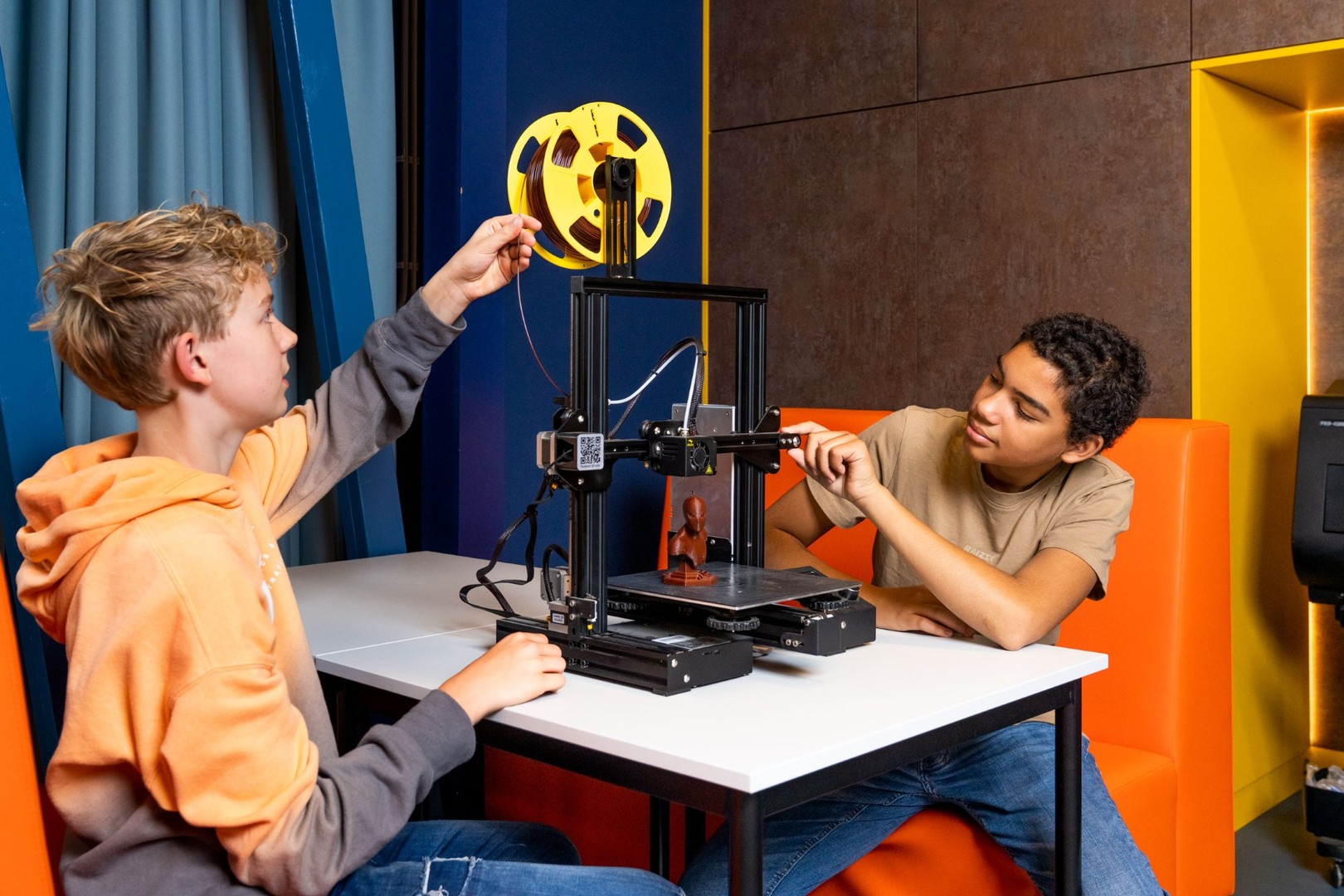
VO Talent Development
Twente is facing both a challenge and an opportunity: the demand for well-trained technical professionals continues to grow, while the number of young people is declining and the current workforce is ageing. At the same time, too few young people are opting for a career in technology during their educational path - often due to a lack of awareness about what a future in technology actually entails. Through the “Secondary Education Talent Development” project, Twente Board is investing in a future-proof Twente by working with schools and businesses to make the choice for technology more attractive and tangible for students.
A Broad-Based Approach for Secondary Education
Within this project, secondary schools, the University of Twente, Saxion University of Applied Sciences, ROC van Twente, TechYourFuture, and regional businesses are jointly promoting better technological orientation in secondary education—with a particular focus on pre-vocational secondary education (VMBO-TL), senior general secondary education (HAVO), and pre-university education (VWO). “Unlike primary education and practice-based VMBO, where programmes such as Kids4Twente and Sterk Techniekonderwijs already exist, this target group still lacks a broadly supported, programmatic approach,” explain Manon Ketz, board member at Het Stedelijk, and Maria Hendriks, director of TechYourFuture. Technology must be given a clear and structural place in the curriculum, tailored to the context of each school. This means working on engaging teaching materials, real-life assignments, and meaningful connections between pupils, teachers, and businesses in the region. “By integrating technology into other subjects, we reach every student—not only those who have already chosen technical or science tracks, but ideally all students in each school. This expands our reach and increases the likelihood of more pupils progressing to studies and careers in Technology and Science. Technology is not just found behind a machine; it’s also present in healthcare, environmental management, and virtually every aspect of our daily lives. We want students to become aware of this early in their educational journey,” explains Manon. “In doing so, pupils also gain genuine exposure to Twente’s business community. This not only strengthens their perception of technology but also their connection to the region,” Maria adds.
The project places a strong emphasis on subject teachers and teaching teams—because quality education starts with the teacher. Teacher professionalisation, curriculum development, and improved career orientation go hand in hand. In collaboration with business partners, cross-curricular, technology-focused lesson content is being developed to inspire pupils and boost their confidence in their own abilities. Schools are supported in redesigning their educational approach at a pace and in a manner that suits their specific needs. “Some schools are already experienced and will continue to build upon that foundation, while others will use the project as a starting point for establishing a technology pathway. What’s crucial is that this is not an additional programme layered on top of existing teaching—it should align with what is already in place,” Manon emphasises.
In 2025, a group of five secondary schools (across seven locations) will start as frontrunners. “They will bring their networks of companies with them. In a subsequent phase, more schools and businesses from Twente will be able to join. Learning from each other and working towards scalability will be key,” say Manon and Maria. “That is why we will regularly organise events and gatherings for all schools and companies in Twente. These will provide opportunities to share experiences and insights into what works and what teachers need.” Through this investment, Twente Board contributes to structural educational innovation that makes a real difference: more young people opting for technology, better alignment with further education and the labour market, and stronger regional ties for technical talent.
For more information, contact Marieke Krakers: m.m.krakers@saxion.nl & Emmily de Vries: edvries@hetstedelijklyceum.nl
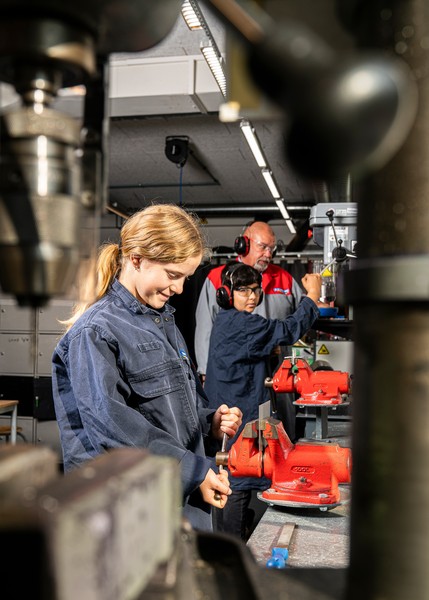
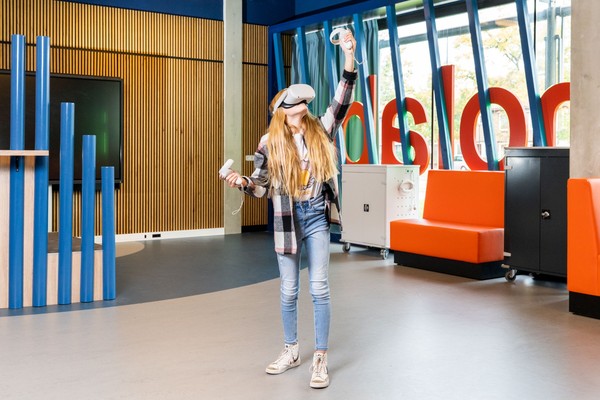
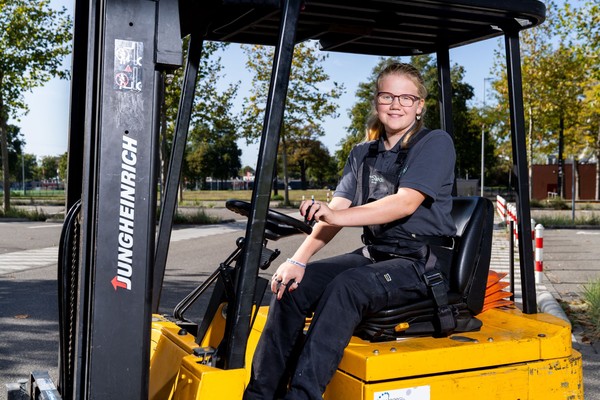
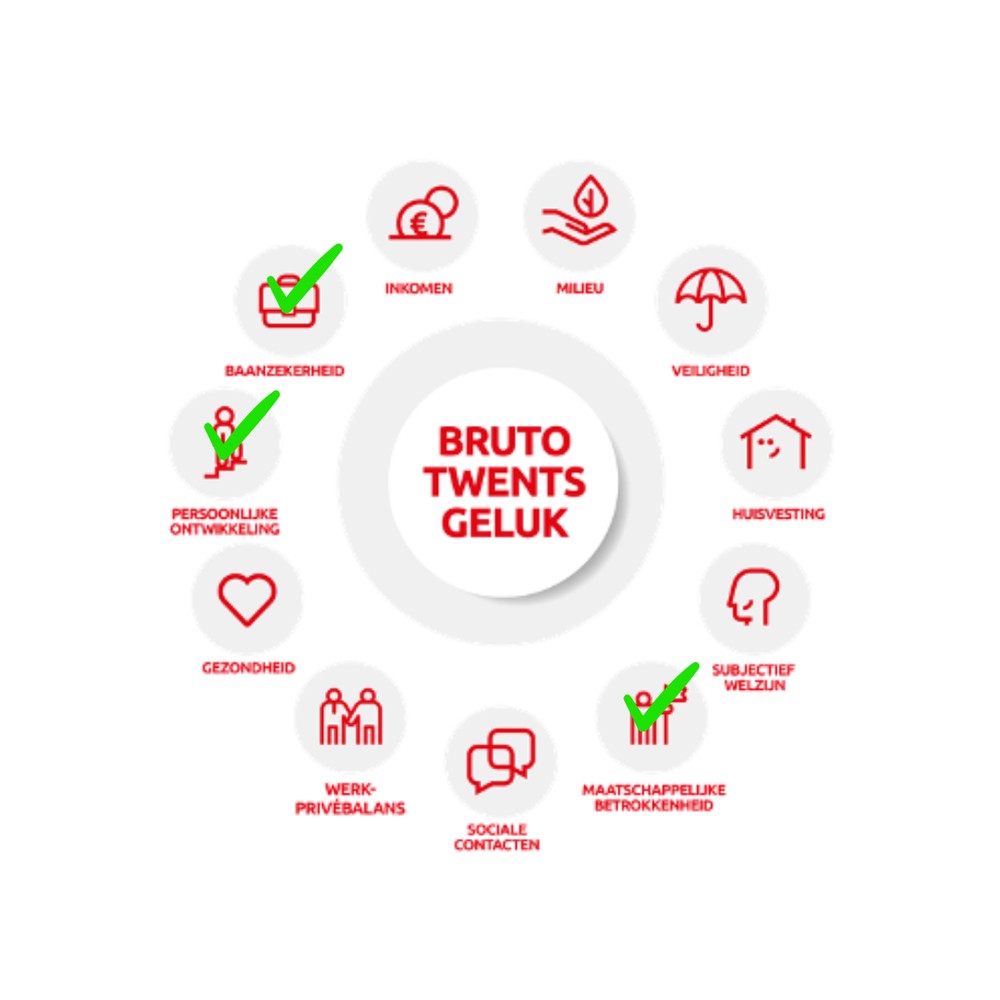
Gross Twents Happiness
Which indicators does the [naam] project VO Talent Development contribute to?
✓ Job security
✓ Personal development
✓ Community engagement
